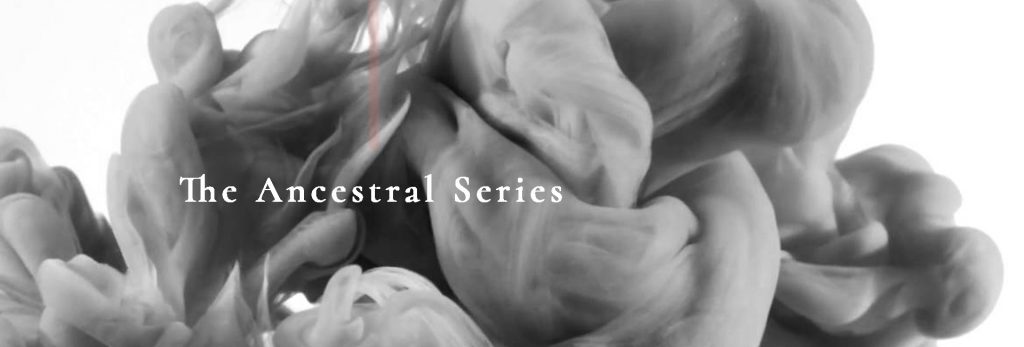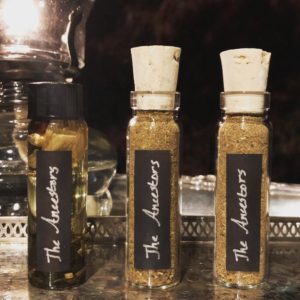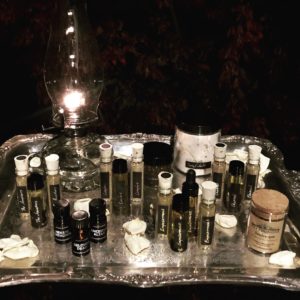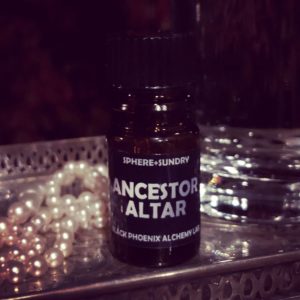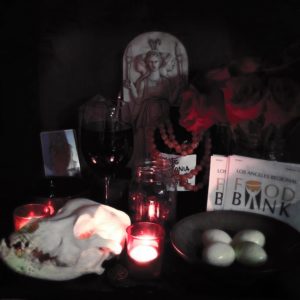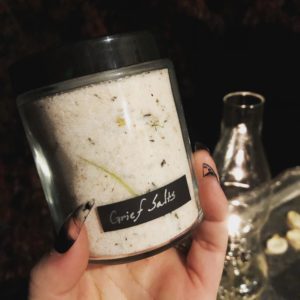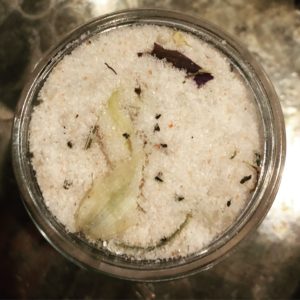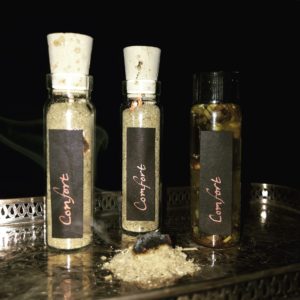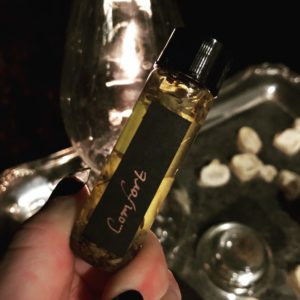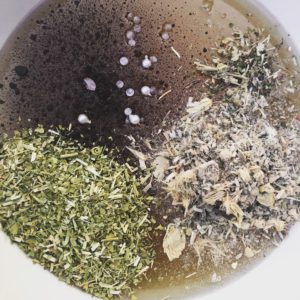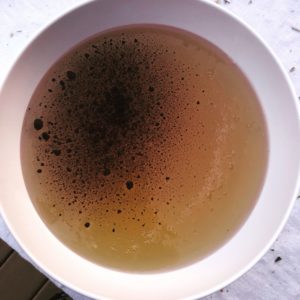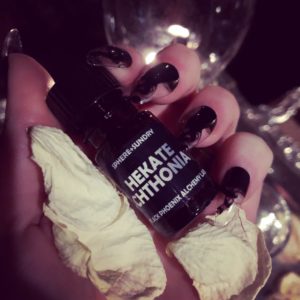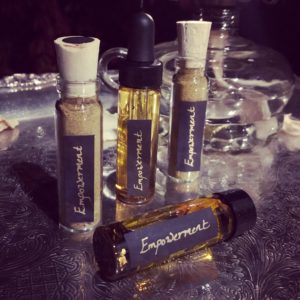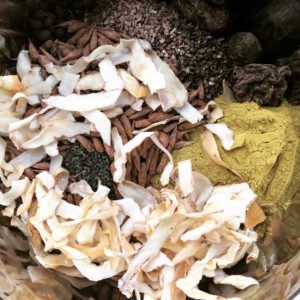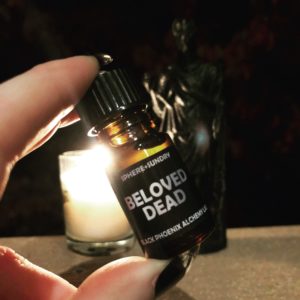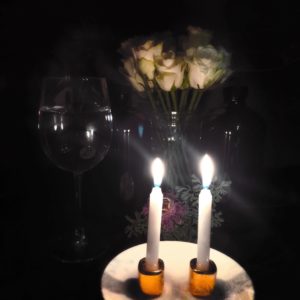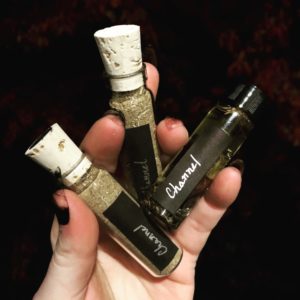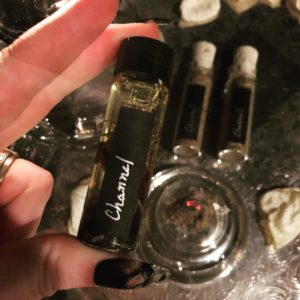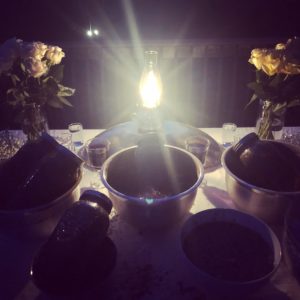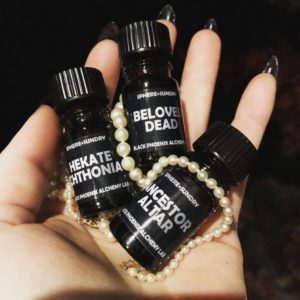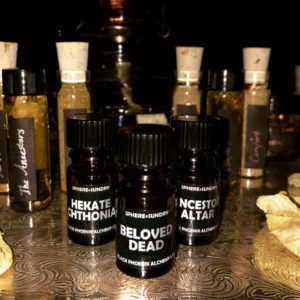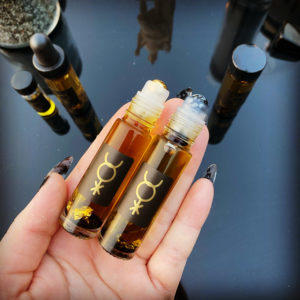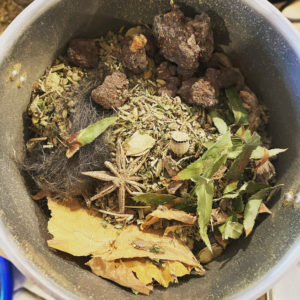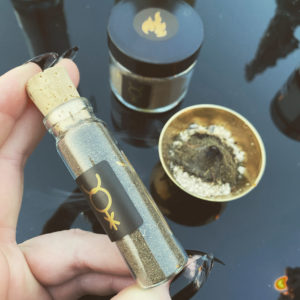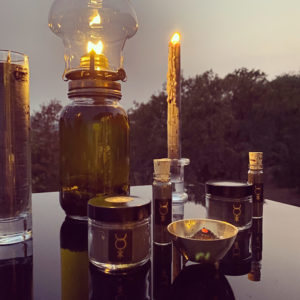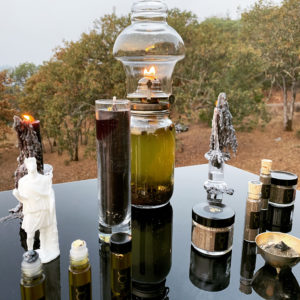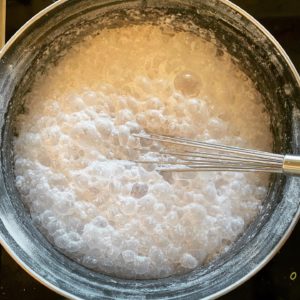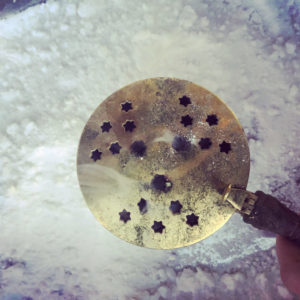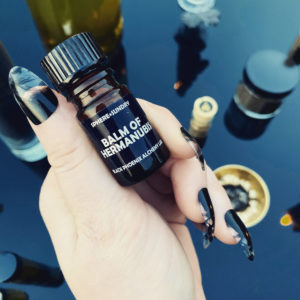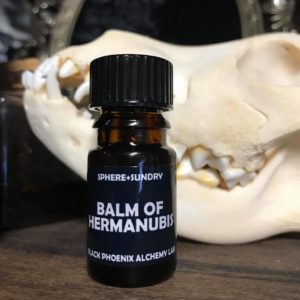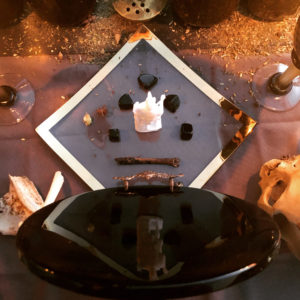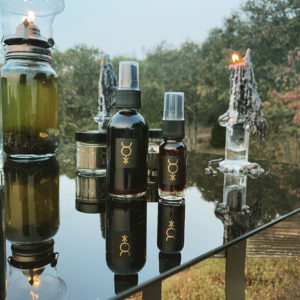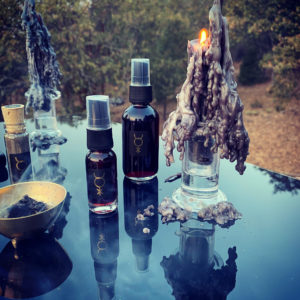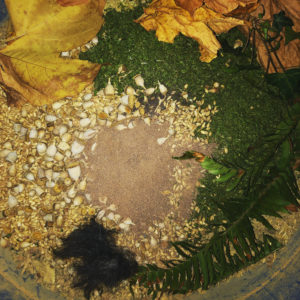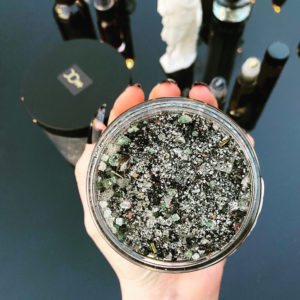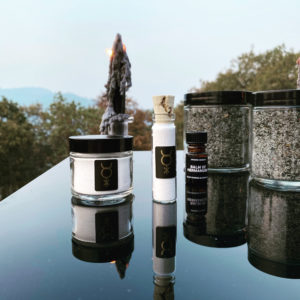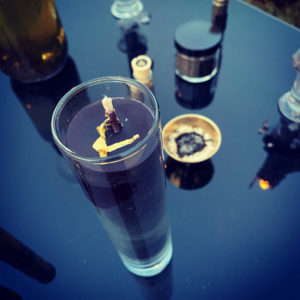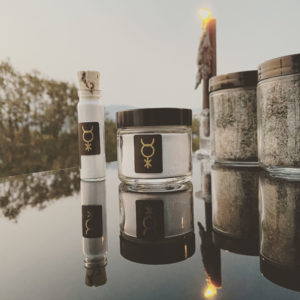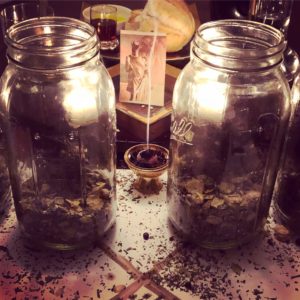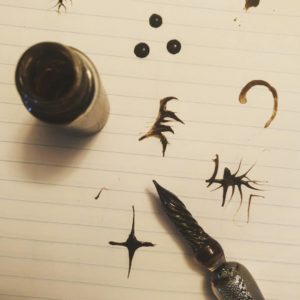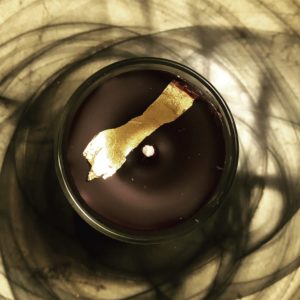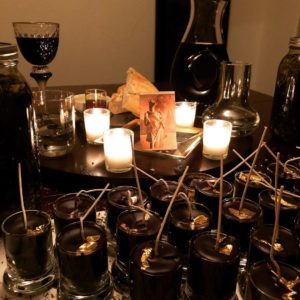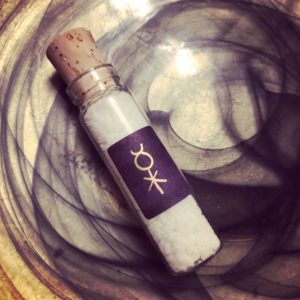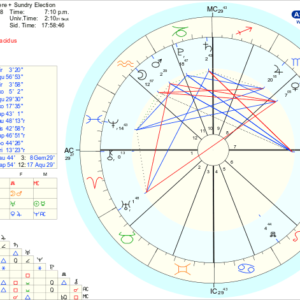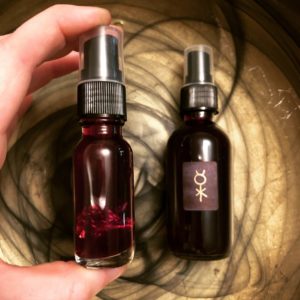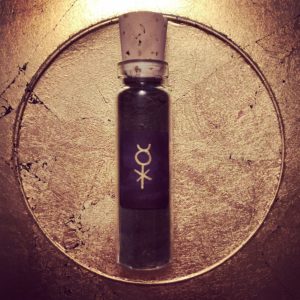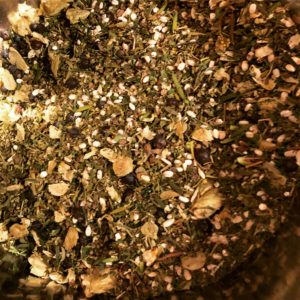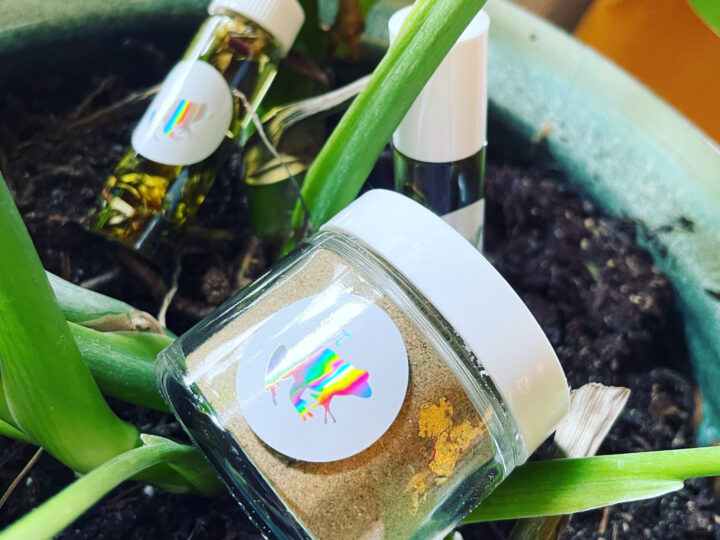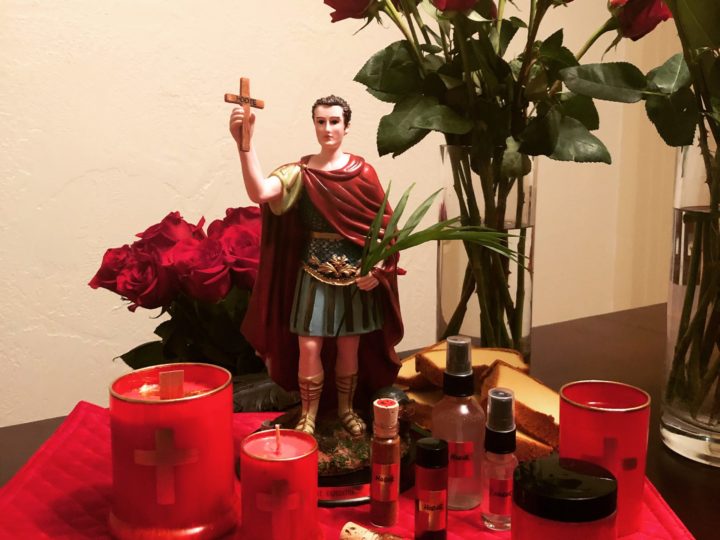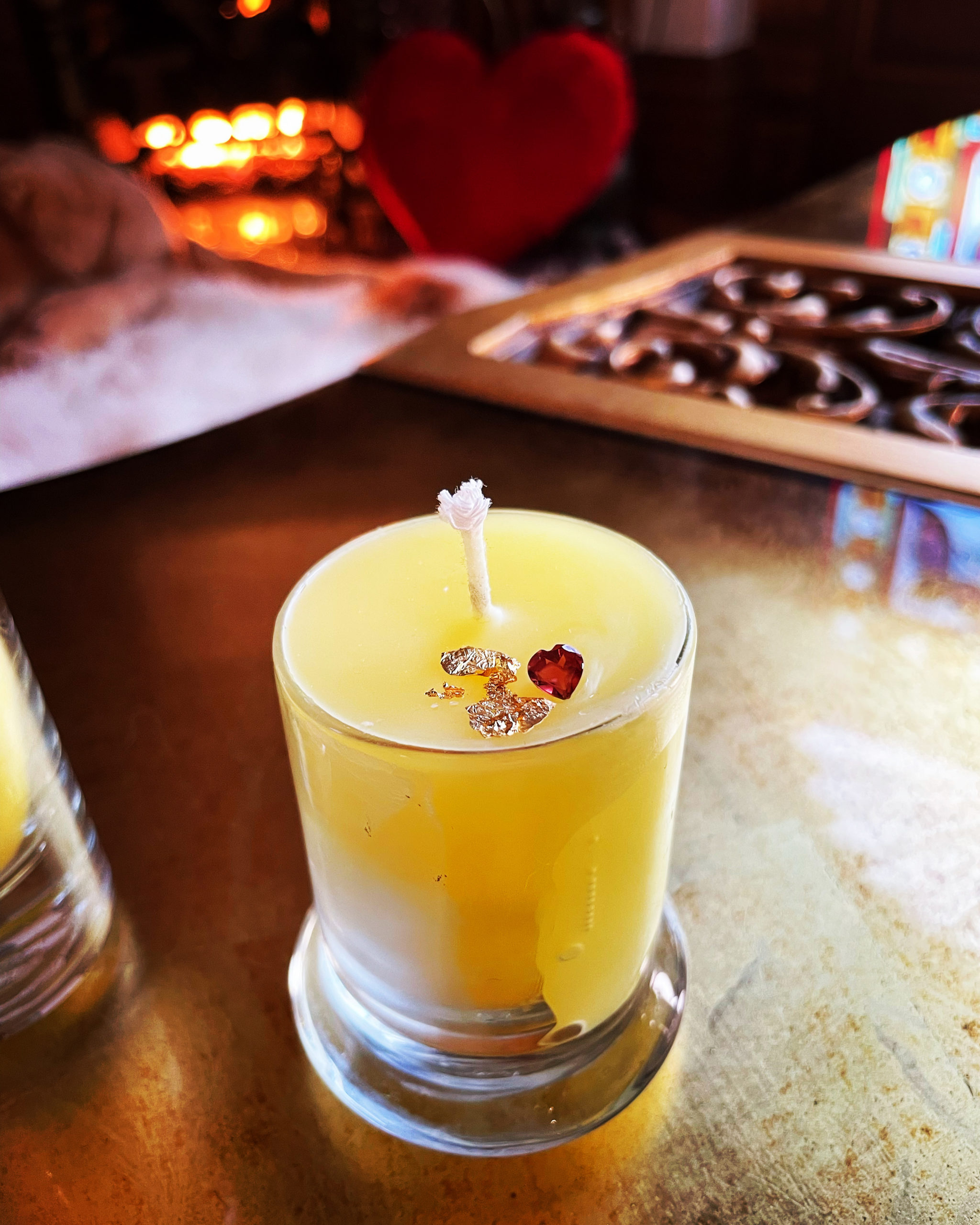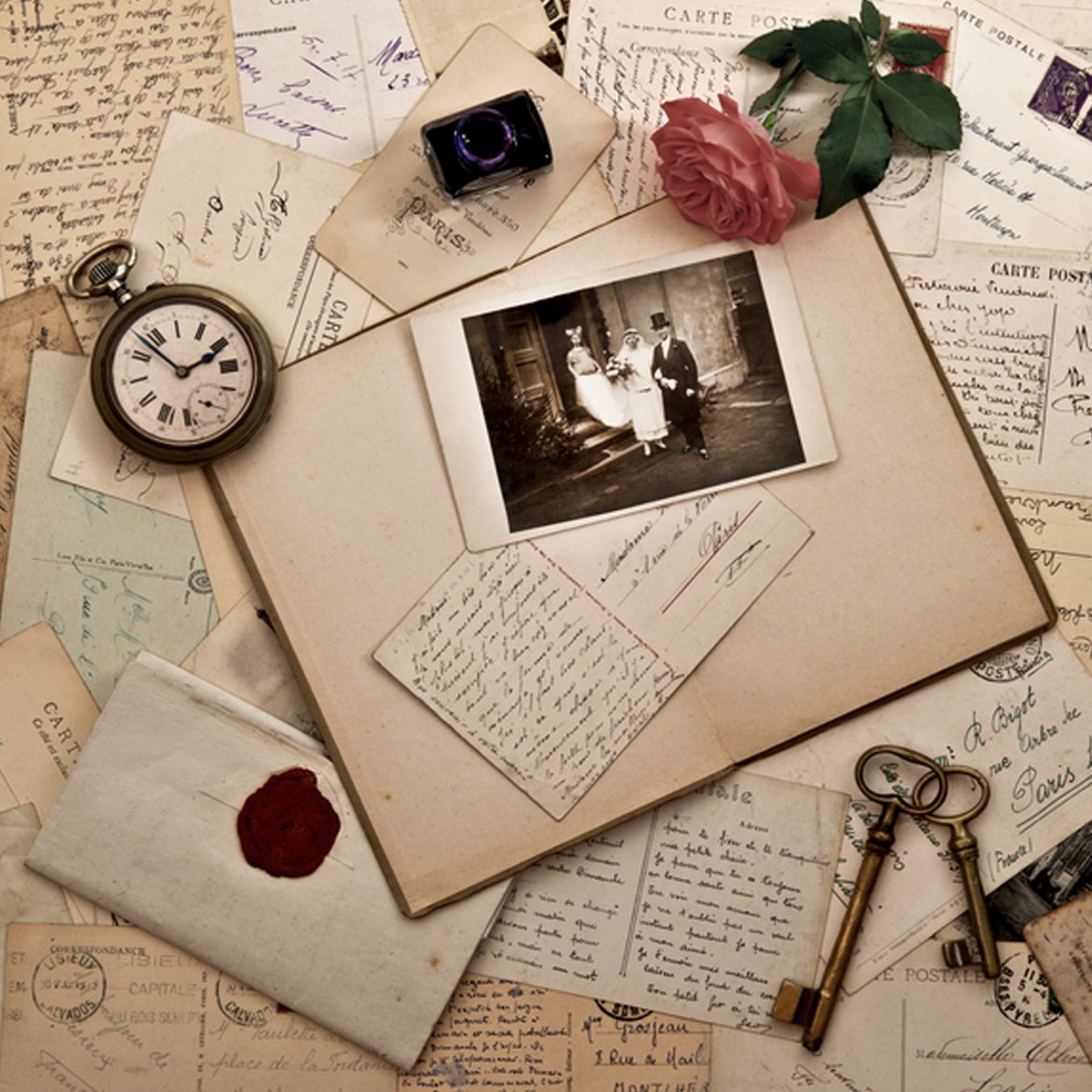
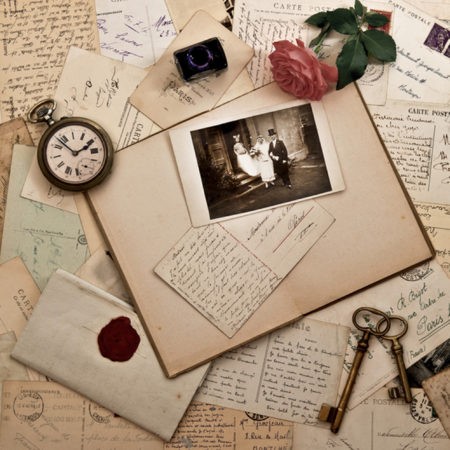
Plagiarism Advisory - A Guide to the Witches' Season of the Dead by Taren S
On October 7th, 2024 we received a message in our support portal:
i noticed Your “A Guide to Dead and Ancestral Worship, Altars Offerings, and Ritual” needs to add credit where it is due. Most of this post is from a book called “A guide to the Witches’ Season of the Dead” by Taren S
Having never heard of it before, I began to research. The “book” was self-published on September 26th, 2020, while this article — my original article — was published almost a year earlier, on October 29th, 2019 (according to Google’s index).


The back cover alone has directly plagiarized the search engine blurb (part of a longer paragraph in the intro), with a tell-tale copy and pasting error leftover from deleting a few words in the middle (the “by” should have also been deleted).
“Relations can be BY immediate bloodline, which are Ancestral, or they can be chosen…”

When I went to look at a sample of the book on Amazon, at least half of what was previewed was just a direct lift from the article.

 This is extraordinarily disappointing given a video the “author” put out recently regarding (drumroll!) fake books and plagiarism in the witchcraft community.
This is extraordinarily disappointing given a video the “author” put out recently regarding (drumroll!) fake books and plagiarism in the witchcraft community.
Needless to say, I agree with Taren S!
(whose motto is “celebrating, honoring, respecting”, by the way!)
Plagiarism is a huge issue in today’s climate.
May she remove the book and issue a public apology
(that credits her sources… update below!).
UPDATE APRIL 27, 2025:
On October 29th, following a deluge of negative reviews on the book and comments on her social media and YouTube about this (which have all been deleted), Taren published a video titled “I REALLY Messed Up Public Apology“, in which she again did not cite her source.
She claimed she reached out and I never responded to her, which is at best half true, sort of, but not really.

I had not yet had time to respond to her original email (less than one day), before she placed an order and tried to infiltrate my Client Community under an alias, Ashianna Blue / Smith (which I immediately flagged as a an associate of hers, having visited her blog the day before).
[below is a more recent screenshot of the name, taken when this update was written on April 27th, 2025]

We know this is an alias of Taren’s because all activity under both names happened through the exact same IP address in short order. In addition to the fact that this “person” has zero footprint outside of Taren’s umbrella.


She wanted to infiltrate our Client Community to see what my camp was talking about in the midst of this drama.
I refunded her order with a note as to why, and she replied, creating a support ticket:

It was here, under the alias of “Ashianna Blue” that I responded to and spoke to Taren.

Because this woman is clearly a liar, she is alleging we never spoke / I never replied, but that is a technicality at best.
The truth is, she does not want her followers knowing the extent of her plagiarism, since she is billing the situation as an “oversight”, and because her wrongdoings have been so thoroughly documented here, at the top of the article she would need to direct them toward.
If she were truly sorry, she would not be deleting comments from people who know the truth. She would remediate the situation correctly and be done with it.
The book remains for sale, now without preview text. It is still listed at 54 pages, which if true, means she has not edited out my work, and continues profiting from the sale of it.
Though I doubt very much I am the only person Taren / “Ashianna” has stolen from. Their books are very likely full of all kinds of plagiarized content and AI garbage, which is also plagiarism, just remixed by robots. She really did straight up just… tell on herself.
So anyway. Why pay for what you can get below for free?
Onward and upward…
A Guide to Dead and Ancestral Worship, Altars, Offerings, and Ritual
This was posted to Facebook, Instagram, and Twitter on October 30th, 2018. It was updated and re-circulated October 27th, 2019.
My earliest brushes with the paranormal were all oriented around the dead — seeing them, hearing them, being scared the shit out of by them. I was in my mid 20s by the time I overcame the residual trauma of those childhood experiences and was able to begin working with that class of spirits, including ancestors, and it changed absolutely everything.
“The dead” are, obviously, the spirits of deceased human beings, which are fantastic repositories of knowledge and power, especially those we’re related to. Relations can be by immediate bloodline, which are ancestral, or they can be chosen by personal sympathy, occupation, practice, art, or interest.
Why honor our ancestors?
On a primal level, no one is more invested in our health, success, and wellbeing than family, especially the lineage of those who directly birthed or seeded us. Our mother and father, their parents, their parents, and so on. Great sacrifice goes into having a baby and rearing a child — living, breathing extensions of yourself, and vehicles for legacy, genetic and otherwise. Investment in descendants and family is but one natural manifestation of self-interest and egotism, outside of unconditional love and biological values, and those instincts are carried on in death, sometimes even moreso than in life.
Consider it from the perspective of grandparents, who are famous for doting on their grandchildren — spoiling and loving them unconditionally, regardless of whether the grandkids themselves seem to care or appreciate it! Maybe these same grandparents weren’t even the best parents to their own kids, but as generations and immediate care taking duties become farther removed, the love they have for their offspring becomes distilled and more pronounced, less muddied by the stressors of everyday life or the the chaffing of personalities.
Ancestral grandparents are just as excited to pay attention to the goings on of our lives and dote on us from the other side, and will, just like most living grandparents, have a disproportionately generous reaction to their descendants checking in on them.
Familial Trauma and Unsavory Relations
Let us now take a brief intermission to acknowledge that we live in times of unprecedented familial fracturing, and that elective or forced immigration, even from generations ago, very often results in ancestral disconnection and trauma. This is especially true in the case of cultural conversion and religious oppression, where ancestral customs are lost and our families are no longer in contact with their native lands or burial sites.
America in particular is a melting pot of familial trauma and displacement. Early immigrants were usually making the choice to leave their families and never see them again. And those were the lucky ones — people who had a choice, unlike the many Natives who were exterminated or uprooted, or Africans who were ripped from their homelands and forced into the slave trade.
This is one of the reasons why doing ancestral work is particularly important for Americans and other immigrated families, who are some of the least likely to be engaged in such a practice. Outside of the magical benefits of ancestral veneration, it can be a method of healing intergenerational wounds that live on in our bodies and psyches, which can have all kinds of adverse effects on our health, relationships, and even ability to function.
We must also acknowledge that an aspect of ancestral disconnection stems from relatives being abusive assholes, and old hurts and resentments tied to our lived experiences with them, wounds still being suffered, baneful memories or circumstances still affecting our lives. If circumstances like these apply to you, as someone who relates, I am deeply sorry for your suffering.
It need not keep you from doing ancestral devotions, however. While the family closet may be host to some bad egg skeletons, I promise that you have many generations of ancestors, known or unknown, who love and want to help you.
There are two approaches to handling unsavory relatives in an ancestral practice —
- Use carefully worded invocations so as not to include them in your venerations or offerings. My ritual structure below fits this criteria. Just as in real life, you decide who gets to break bread at your table. Do not put icons, ashes, or images of those relatives on your altar.
- Do intentional work with the problematic ancestor, to heal that trauma within yourself and within their spirit from beyond the grave. This type of work can be intense and would necessitate its own dedicated piece, so we won’t go further into it here, but know that it is an option, and the work of Dr. Daniel Foor is a great place to start.
What are the benefits of ancestral offerings or working with the dead?
How often should I do it?
A regular offering practice for your ancestors will make life run more smoothly overall. Well fed, well intended dead will do you unsolicited favors, such as — keep bad things from happening, protect your own offspring, the rest of your family, and home from harm, act as wards, communicate important things through dream or omen, increase your luck, give you advice and honest feedback on what you’re doing wrong, and generally look out for your best interests.
The dead are, in some ways, simple creatures, easily appeased and happy with relatively little. They want to be acknowledged and to spend a little bit of time with you, and offerings are very basic. They’re unlike Gods who can require elaborate and time consuming shows of dedication, demanding very particular offerings, or other classes of spirits who are easy to offend and high maintenance to wrangle.
The dead are also under-trafficked, relative to their capacity. There might be tens of thousands of people calling on Jove or Ganesha at any given time, but chances are slim to none that someone else is knocking on great-grandma’s grave to give her fresh flowers and brandy. Big spirits have more energy to get things done, but their attention is divided between tons of propitiants, so competition for bandwidth and priority is a factor.
A regular offering practice for your ancestors will keep them paying attention to you between feedings, because frankly, there isn’t a whole lot else to do over there that interests them as much as you do, and they’ll be looking to you for continued interaction.
What do I mean by regular? That’s personal, but once you establish a pattern try to stick to it or make up for deviations. Once the dead become accustomed to a feeding schedule they can get restless and start throwing tantrums if devotions are missed, which is the opposite of the goal. I would recommend at least once per month on the New Moon, but it can be more regular than that.
Good times to make offerings and do rituals for the deceased —
- Every New Moon, at night
- Saturdays during the hour of Saturn
- Tuesday nights after dark, hour of Saturn
- Around the time of Halloween/ Samhain/ Dia de los Muertos, or sympathetic calendrical beacons per your cultural and religious background
- Any holiday spent together and breaking bread with living family (Christmas, etc.)
- Birthdays or deathdays of significant ancestors
- Your own birthday; the birthdays of your parents, children, or siblings
Around this time of year (from the Fall Equinox through Halloween and the first week of November) is the perfect time to clean or establish a new dead altar and offering schedule. Contact is assisted by the veil being thin.
Ancestral + Dead Altars
Ancestral or dead altars should either be positioned in the West, as the direction of departing life force/ sunset and the gate to the underworld, or North, for the dead are said to dwell there.
You can choose by whichever is more practical or feels right, but it should be its own little table or space, preferably in an area of the house that is low traffic for personal altars, OR is part of the collective family space, if it is to be used by a whole (living) family.
Most people say that you should separate an ancestor altar from a more generalized dead altar, and that issues can arise by combining them, primarily over offering squabbles. That hasn’t been my personal experience — I keep mine together and give offerings in order by invitation (acting psychopomp first, for way-opening services; blood ancestors second; chosen and well intended dead next; anima sola last).
Feel free to experiment with what feels best. Also, if you’re just starting out and don’t intend to work with dead outside your family group, there is no need to create a second altar or perform the later generalized-dead portions of this ritual.
An example altar could include —
- Black or white altar cloth
- At least one candle, or a central candle and smaller candles for particular ancestors you wish to venerate
- Photos of passed over relatives, especially ones who were dear to you, or that you’re particularly interested in
- Belongings of deceased relatives, such as jewelry, diaries, letters, religious items (rosaries, bibles), metals of honor or regalia, keys, or keepsakes
- Ashes of relatives, or graveyard dirt from their burial site
- An incense burner
- A place for flowers
- A place for beverage offerings
- A place for food offerings
Optionally —
- A statue or image of an intermediary psychopompic deity, such as Hermanubis or Hekate, to help you better call and communicate with the deceased
- A notebook and pen for writing letters to your relatives, or for automatic drawings and downloads resulting from any trance or mediumistic work
- Pennies or coins to pay the toll for travel between the worlds of the living and dead
- Bones, snake skins, dried flowers, shells, tarot cards, or other items related to the death arcana
Appropriate Offerings
There are certain offerings that nearly all the dead enjoy, which will be listed below. Then there are offerings that are particular to what the deceased enjoyed in life.
If you have certain relatives in mind that you would like to particularly honor or ingratiate yourself to, consider offering something specific to them. The dead, because they were once human, have the same relationship to thoughtful gifts as the rest of us. The more thought, individual consideration, and love that goes into them, the better.
If your grandfather enjoyed a nice manhattan at the end of the day, go to the trouble of mixing him one! If you have a recipe book handed down through your mothers’ side, re-create some of those dishes. If your favorite aunt wore Channel N°5, spray it over the altar or toward her photo. If someone liked a particular brand of cigarette, keep a pack on hand. You get the idea! Even playing someone’s favorite song, or giving them a new gift or asset for use beyond the veil in their favorite color, can be a wonderful offering.
Generalized dead offerings —
- Fresh water (required)
- Hot coffee or tea, often sweetened
- Wine or hard alcohol
- Cigarettes/ tobacco (someone somewhere upstream smoked, probably many of them)
- Desserts, sweets, or candy
- Home cooked food, especially served warm and steaming
- Fresh fruits, cut and ready to eat
- Bread, cut and ready to eat
- Flowers
- Coins
Spirits are drawn to scent. Hot or steaming offerings, such as incense, are very attractive to the dead. A convenient and apt way to offer food is to set aside a portion of whatever meal was cooked and shared between your living relatives, and offer it to your ancestors before it cools, or re-heat it before offering. This is especially true for family gatherings during special occasions or over the holidays.
Note that you do not have to give every type of offering listed every time you make them. I will typically do a glass of water and one other type of beverage, whether alcohol or coffee, and some form of food, sweet, or flowers. You can cycle and give as and what you feel is appropriate, depending on the occasion and if you’re targeting a specific ancestor.
Ancestral and/ or Dead Offering Ritual
Once you have your altar set up, you’re ready for ritual veneration and making offerings. You may or may not have your own way of doing this and invocation. The script and procedure that follows is just a helpful template that works for me.
Once you get familiar with the process or for more casual workings, there is no need to use an outline, or do something so involved. This is for hardcore, dedicated ancestral and dead work, befitting the season. A lot of people just throw a plate of food and cup of water down and say “have at it”, there’s no wrong way to honor your ancestors, as long as you’re doing it!
The ritual structure I am about to present is very malleable. You can omit certain portions as you see fit, and still progress through the template to contact the ancestors and/ or dead you desire. If you only want to talk to your patrilineal side, just perform the opening, do the paternal invocation and close. If you only want to call a specific deceased person, skip to the Chosen/ Sympathetic Dead call.
Leave out what doesn’t apply, and modify this to suit your needs. Read it all the way through at least one time so you can get a sense for how it works, and then set out to customize it. A downloadable Word file is available at the end of this piece for you to modify and print.
As for offerings, prepare and have them ready beside you but don’t put them on the table until it’s that part of the ritual.
Preparation and Opening
Now is a good time to anoint yourself with any oils or sprays designed to enhance contact with the deceased or increase psychic sensitivity. The incense you burn on your ancestral altar can also be designed for that purpose, or you can use your deceased mom’s favorite.
Light the main candle of your altar and the incense. If you have candles representing individual relatives, wait to light theirs until you call them individually.
Sit for a moment, centering yourself, becoming receptive, and attuning to the altar. You don’t have to use a psychopomp to connect with your ancestors or the dead, but I do find that it helps. If you don’t want to use one, just skip it and lay the offerings out now.
Calling Your Psychopomp
Hermes Chthonius can be used for a general underworld Mercury (here is the orphic hymn), or use an appropriate underworld road-opener you have a pre-existing connection with, such as Baron Samedi or Hekate.
I use Hermanubis and keep a statue of him on my ancestral/ dead altar. My invocation is something along the lines of —
Hermanubis, Hermanubis, Hermanubis, I call! Come to me, here and now, in this space I occupy, which will serve as a crossroads and meeting place for myself, the living, my ancestors, and dead.
Act as a door and guiding light for those I seek. Make me understood by them, and ensure I understand them in turn. Rend the veil between this world and that of the deceased — the underworld, the realm of Amenti. Fetch whom I call, from wherever they may be, and see to it that they receive my words, gifts, and intent.
Accept these offerings of fire, light, incense, (water, wine, bread, etc.) for your services. Disseminate these offerings to the dead I call and invite to partake of them, and see to it that no uninvited intruder finds their way to this altar.
Praise be unto you, Hermanubis!
Make sure these words are heartfelt. If you have a statue or image representing your psychopomp, bathe it in incense smoke or anoint it with oil. If you have it, spray the Dead-Drawing elixir around the altar.
Place the offerings on the table, also running the plates and glasses through the incense smoke. Make a “partake!” gesture toward them, with your hands and heart.
Calling Your Ancestors
Regardless of the relationship we had with our mother or grandmother (if either are deceased), and our matrilineal line, we owe them the greatest ancestral debt.
They physically carried us and the daughters of our lineage to term and went through the birthing process, acting as womb door, and were likely the primary caretakers of our ancestry. Because of this, I highly recommend calling the mother’s line first.
The Matrilineal Call
Now, you can make things “easy” and just say “I call the spirits of my matrilineal line”, or you can perform a more complex, but more effective call. I recommend doing the full version at least once to see how much more powerful it is before cutting corners.
Invoke the most recently deceased, skipping over anyone who is alive (or who you don’t wish to include), tracing backwards. Use full names if you know them, or just identify them by relation. Go at least 3 generations deep, up to 7. If you have a candle representing any of the names you say, light it as you call them. In my case, because my mother is deceased but my grandmother is alive and is therefore “skipped”, it goes —
I call, here and now, the honored and well-intended dead of my matrilineal line. My mother, (say full name), my great-grandmother (say full name or the last name), my great-great grandmother, her mother, and so on!
Every woman who birthed a woman who birthed a woman who birthed a woman, whose blood runs through my veins!
Come to this altar, and accept my heartfelt thanks for the sacrifices you made for our family. Accept these offerings of (food, drink, scent, and fire), along with my love and gratitude. May they take the form that most please you!
Bow to them in appreciation and make a “partake!” gesture toward the offerings. Spend a moment talking and connecting with them, or take care of any communications or business with your matrilineal side before moving on.
The Patrilineal Call
Say “I call the spirits of my patrilineal line” or perform the same extended call, lighting any dedicated candles as you say their name —
I call, here and now, the honored and well-intended dead of my patrilineal line. My grandfather, (say full name), my great-grandfather (say full name or last name), my great-great-grandfather, his father, and so on!
Every man who sired a man who sired a man who sired a man, whose blood runs through my veins!
Come to this altar, and accept my heartfelt thanks for the sacrifices you made for our family. Accept these offerings of (food, drink, scent, and fire), along with my love and gratitude. May they take the form that most please you!
Bow to them in appreciation and make a “partake!” gesture toward the offerings. Spend a moment talking and connecting with them, or take care of any communications or business with your patrilineal side before moving on.
The Extended Family Call
I now call the well-intended, honored dead of my extended family, my deceased aunts, uncles, cousins, and relatives, whose blood runs through my veins!
Come to this altar, and accept my heartfelt thanks for the sacrifices you made for our family. Accept these offerings of (food, drink, scent, and fire), along with my love and gratitude. May they take the form that most please you!
Two Roads Diverge
If all you are doing is bloodline ancestral veneration, you can skip the next steps and move to the closing portion.
The Chosen Dead Call
Remember earlier how I mentioned you can work with specific dead, or classes of dead by profession, art, interest, etc? This is the portion where you can call them to the table.
I now call (name; name; — any deceased, non-relative you wish), and the well-intended, sympathetic and the honored dead of (astrology, painters, architects, demonologists, what have you)! Those who spent your life honing your craft, who have much to teach.
Come to this altar, and accept my heartfelt thanks for the sacrifices you made for your (profession, art, passion, etc.). Accept these offerings as a token of my appreciation for your works and knowledge. May they take the form that most please you!
The Anima Sola Call (Dead Charity)
The Anima Sola are the “lonely souls”; ones who are in purgatory and haven’t found their way to the next stage. I also put ghosts and restless dead in a broader form of this category, outside the strictly Catholic construct.
This portion is essentially charity for such souls, wherein they are fed and our psychopomp is asked to assist them in finding their way, the offerings we’ve already given paying the toll, or you may deposit at least two pennies on the altar. Performing this type of charity can bring unexpected boons, and it can also be done in graveyards — but that’s for another article!
I now invite the well-intended Anima Sola. Any unfortunate, deceased souls who have not found their way to their next stage or resting place, so long as they wish me well, are welcome to partake of the offerings my family and honored dead will share.
Come to this altar, warm yourself upon this candle. Let this fire invigorate your spirit, and have it light your way. Quench your thirst with this water, and nourish yourself with this bread. Be comforted by our human connection, and then be delivered by Hermanubis to your next destination. Be well, and be at peace!
Closing Portion
Spend as much time in communion with the dead you have called as you wish. The dead appreciate sacrifices of your time and devoted attention as much as anything else. You can talk to them — tell them about your days, your ambitions, your worries. Listen to music, read, or make art and let them share space with you. You can also try some automatic drawing or scrying, pivoting into more necromantic territory.
When you are ready to close the ceremony, something like this can be said —
Thank you to all of my ancestors and the dead who have come to commune with me this night. I pray that you enjoyed your offerings and had your fill! Continue to aid and protect me in my life and works, and know that I am grateful.
You are given license to depart. Return to the resting places you belong, do not linger unduly, and come swiftly again next you are called. My love and gratitude are with you, always!
Hermanubis, see to it that all of the souls who were called here today are delivered to where they ought to be, and help the lost souls find their way. This Rite is now closed.
Clap your hands or ring a bell/ gong. Blow out the candle. You may wish to spray the area with Asclepius Water, Water of Golden Sol, or do some other form of banishment if the license to depart was insufficient, depending on how much energy you put into the calls and procedure.
Remove offerings before they rot. It is best to dispose of them in nature, at crossroads or burial grounds, or the edge of the woods.
Post-Op Care
When engaged in such heavy death adjacent ritual, it can be a good idea to change clothes and even shower or bathe afterward. The dead have a heavy and draining energy if left to linger, so it can be good to re-orient to a more vital key. Smoke and waters from the Sol in Leo and Asclepius series can be used to clear one’s field and physical space, and applying the sprays to the body or anointing the heart center with oils may also prove helpful.
Blessings be upon you, your ancestors, and our honored dead! Happy venerating!
Want to download a free Word file of this ritual, to personalize and print?
Join our mailing list to instantly download the Word file of this rite, which you can edit and personalize to streamline your ritual!
We send approximately 1 email per month and your information is completely private ^_^
Already a client/ subscribed? Login to your My Account dashboard to download.
For additional information and magical tools for healing and magical
engagement with the Deceased, check out The Ancestral Series…
Fine print — This is a copyright protected text by Kaitlin Coppock and Sphere + Sundry LLC. All rights reserved. Brief portions may be reproduced online, so long as credit and a link back to this article are provided. Thank you!
Newer
Guide to Picking THEE *PERFECT* GIFT Using Astrology and the Natal Chart (updated)
Older
On the Sun's Fall in Libra, and Taking Our Astro-Magical Vitamins
Comment (1)
-
I have just begun my Ancestral magic journey and hope to actually begin practicing next October. I am so grateful for the amazing, generous free teachings and look forward to buying your book when it surfaces. Thank you.

